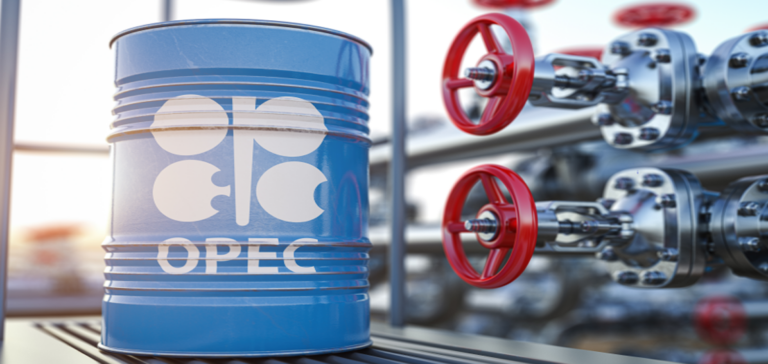OPEC+ stays the course and holds a technical meeting of the Joint Ministerial Monitoring Committee by videoconference on October 4, 2023, at which it recommends maintaining the current production cut strategy. This strategy, reinforced by Saudi and Russian production cuts, is designed to support oil prices.
Opec+’s commitment to continued stability
Opec+ reaffirmed its commitments, and said it was ready to take further measures depending on market conditions. The alliance also praised the efforts of Saudi Arabia, which has voluntarily reduced its production by one million barrels a day since July. The Saudi Ministry of Energy confirmed that this measure would be maintained until the end of 2023, bringing the kingdom’s production to around 9 million barrels per day for the months of November and December.
Opec+ decisions and their impact on the global market
Russia, another influential Opec+ member, is also keeping its oil exports cut by around 300,000 barrels a day until December. Russian Deputy Prime Minister Alexander Novak stressed that a market analysis would be carried out next month to decide whether to increase production cuts or raise oil output, in line with the Saudi statement.
These decisions are in addition to the production cuts implemented since May, effective until the end of 2024, by nine countries, including Saudi Arabia, Russia, Iraq and the United Arab Emirates, totaling 1.6 million barrels per day. Since the last JMMC meeting in early August, oil prices have been on the rise, with an increase of around 5% for Brent, the European benchmark, and over 7% for WTI, its American equivalent. Although Brent crude neared the $100/barrel mark at the end of September, it has fallen back slightly in recent days.
Next meeting and role of the Technical Committee
JMMC members will meet again on November 26 to take stock ahead of the ministerial meeting of Opec’s thirteen oil-exporting countries, led by Saudi Arabia, and their ten partners led by Russia, to be held in Vienna, the cartel’s headquarters. It is important to note that the Technical Committee does not have the power to make decisions regarding an increase or reduction in production quotas, but it does play a crucial role in discussing market conditions and making recommendations that serve as a basis for ministerial decisions.






















